A Day at Gallipoli
Articles on this site contain affiliate links, meaning I may be compensated if you buy a product or service after clicking them. The full privacy & disclosure policy is here.It was all just so fucking futile.
Over 100,000 dead. Hundreds of thousands more wounded. Those somehow spared by machine guns and artillery taken by dysentery, dehydration, and hypothermia. For eight long months waves of soldiers followed orders, climbed up out of trenches, and died. An entire Turkish regiment, the 57th, never came home.
And for what?
For the Turks, at least, there was a reason. They were defending their homeland from foreign invaders. Rightly or wrongly, men have died for their nations since before such things existed.
For the New Zealanders, Australians, British, French, Indians, and everyone else thousands of miles from home, though? Why, exactly, was their life blood coursing into the barren dirt? Why were mothers crying for the sons, some as young as 14, they would never see again?
Why?
Australians and New Zealanders commemorate the Gallipoli landing with a public holiday every year. Crowds gather in the pre-dawn darkness on ANZAC Day to share a collective memory. The failed campaign supposedly defined both nations, the moment they shook off British colonialism and forged their own identities, or so the story goes.
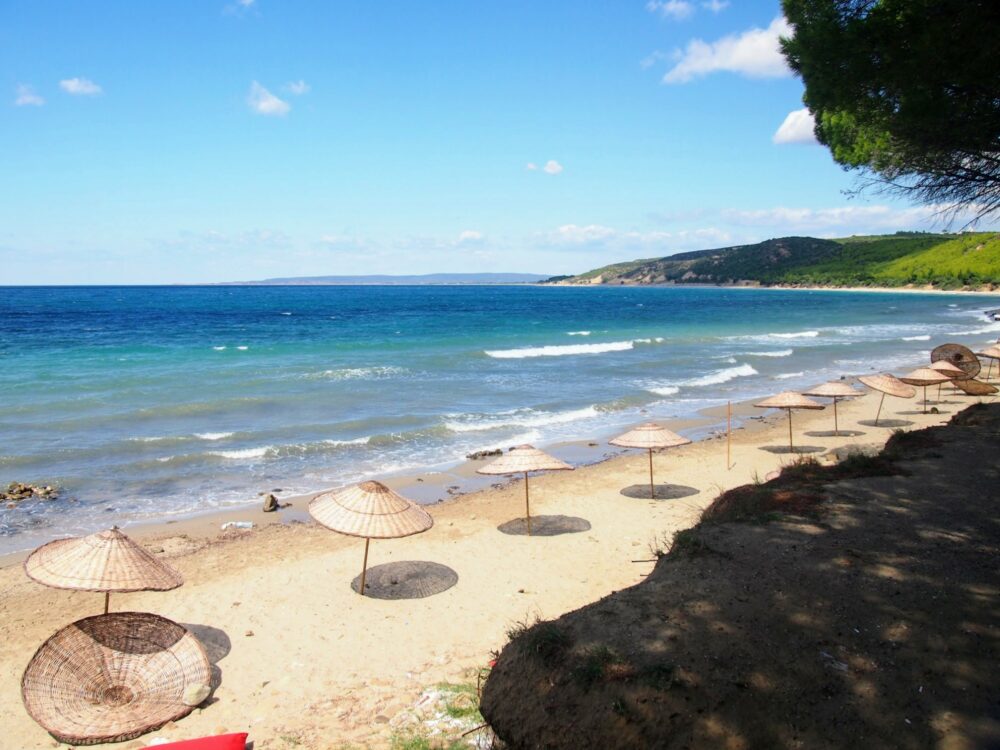
In recent years visiting the battlefields has become a rite of passage. Instead of scrambling up rugged cliff faces under heavy fire as their grandfathers did though, young Aussies and Kiwis have a beer with lunch and then climb into minivans. The intended landing site, once bombarded by heavy artillery, is now a pleasant beach resort. The biggest risk to your health is getting burnt feet on the sand.
What do the locals think of the commercialisation of this piece of land? How do they reconcile the thousands of flip-flops that walk in the dirt where their ancestors died?
It was hard to tell. Our guide, although knowledgeable, seemed mostly indifferent to the death and destruction he spoke of. Perhaps it’s hard to muster up much enthusiasm when you tell the same story every day.
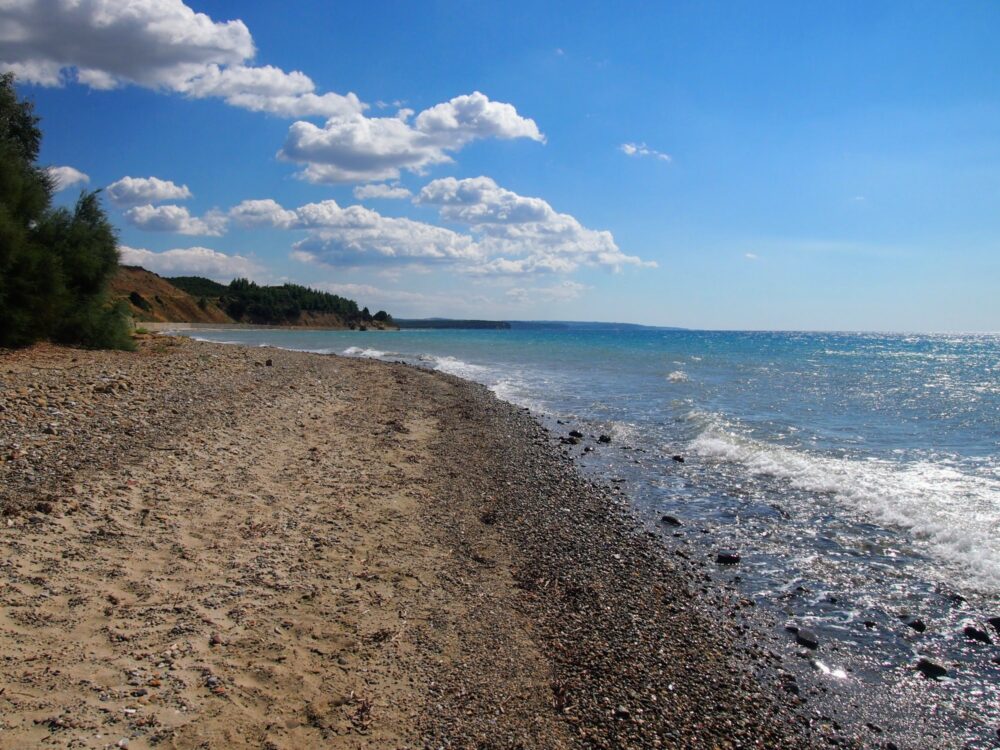
When we stopped at ANZAC Cove, however, it wasn’t the commentary that mattered. Even though there is now a road past it, a retaining wall beside it, this tiny stretch of pebble-filled sand tells a story of its own. One look at the barren cliff face that the infantry had to scale with all of their gear was enough.
It wasn’t even where the Allied troops were supposed to land but, due to reasons that are still debated, the supposedly easy advance up the ridgeline became a hand-over-hand climb under fire up the steep cliffs.
By the afternoon the soldiers had taken the high ground and all but decimated the small enemy force, but due to a lack of clear orders they retreated back to the beach. A small mistake, one of many that meant the campaign ended in months rather than hours, with half a million casualties and an undignified retreat.
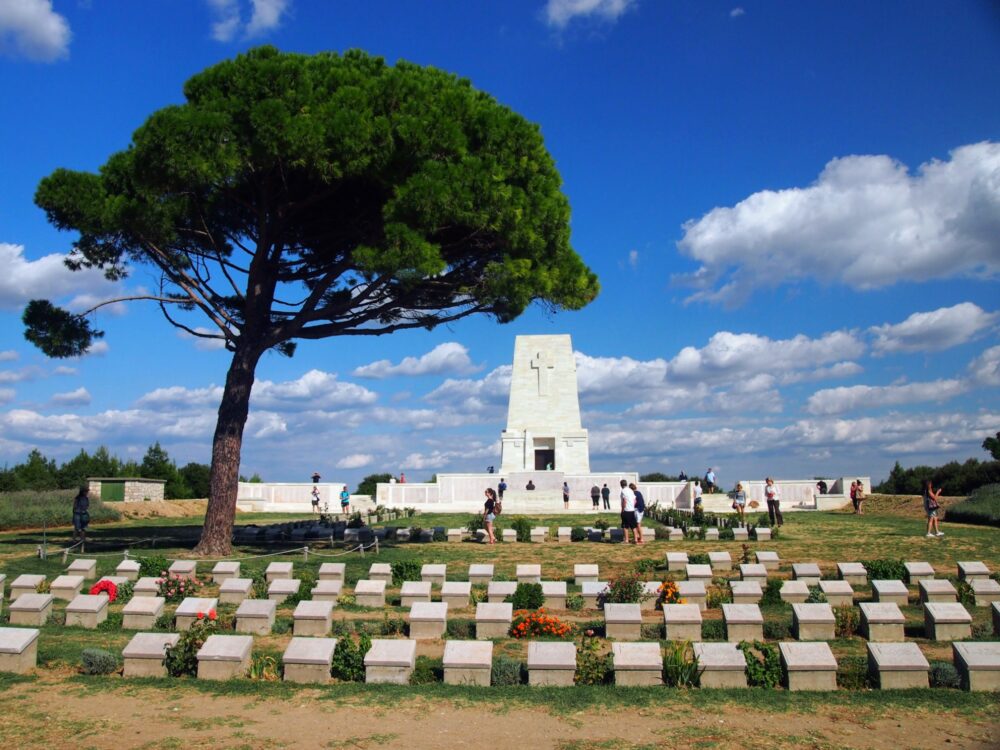
I’m a New Zealander. Nearly 3000 of my countrymen died at Gallipoli. I know that I’m supposed to feel outraged, and I guess I do, but mostly what I feel is sadness. Along this narrow peninsula lie those from Wellington, Auckland, Christchurch, but also those from Sydney, Bombay, Paris, London…and Constantinople. Much is made of the Allied losses, but the Turkish lost many more men, in both percentage and absolute terms, than any other nation.
And for what? After eight months the invaders withdrew, leaving only bodies and scorched earth behind. In a place that would probably never have given the tactical advantage they desired, the Allied commanders finally realised what they should have known when night fell on April 25th, 1915.
This was a campaign they were never going to win.
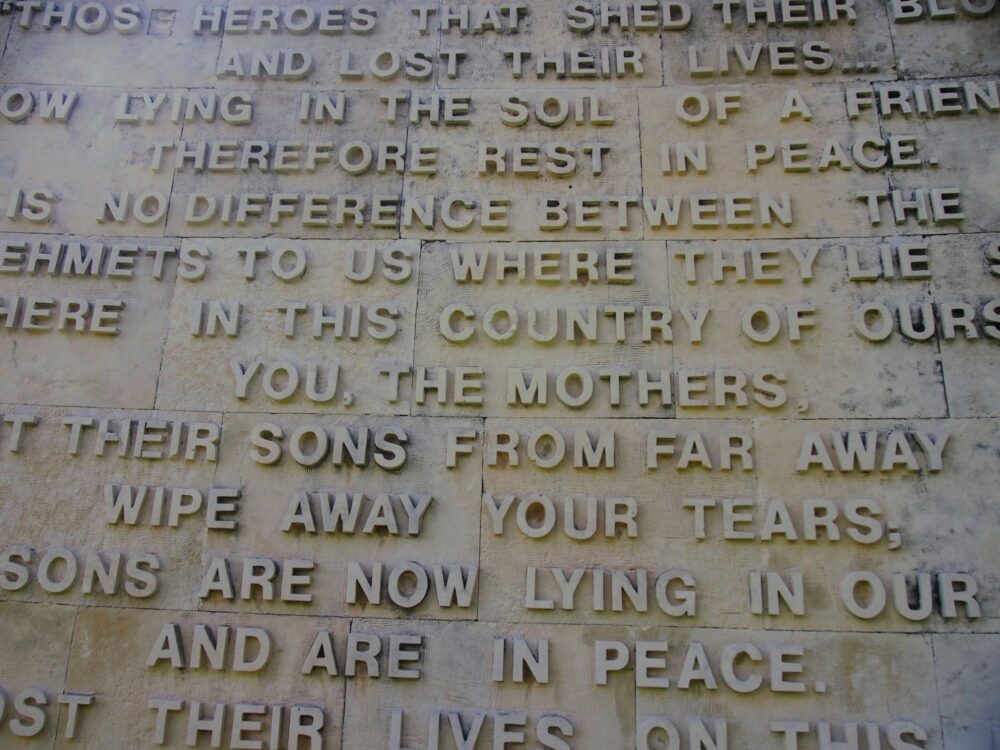
And yet, despite the bloodshed, those on the front line held their opponents in high regard. A famous speech by Ataturk, founder of modern Turkey and officer at Gallipoli, is engraved at Anzac Cove. It is one of the most beautiful, magnanimous pieces of writing I can imagine coming from the hell of those trenches.
“Those heroes who shed their blood
and lost their lives …
you are now lying in the soil of a friendly country.
Therefore rest in peace.
There is no difference between the Johnnies
and the Mehmets to us where they lie side by side here
in this country of ours…
You, the mothers
who sent their sons from far away countries
wipe away your tears;
Your sons are now lying in our bosom
and are in peace.
After having lost their lives on this land, they have
become our sons as well.”
I choked up reading that monument, standing there in that place, before turning on my heel and walking away.
There was nothing left to think. There was nothing left to say.
It was all just so fucking futile.

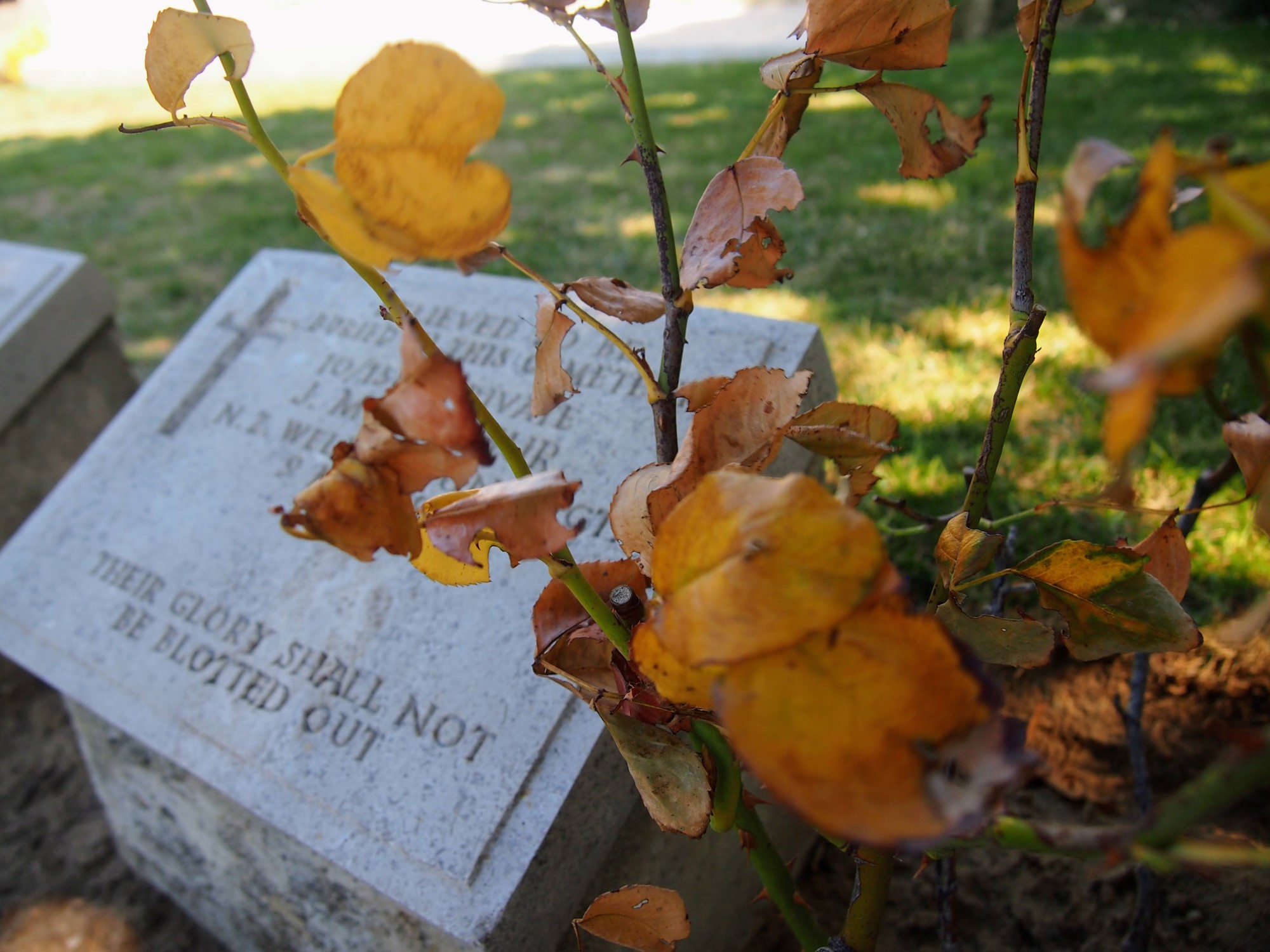
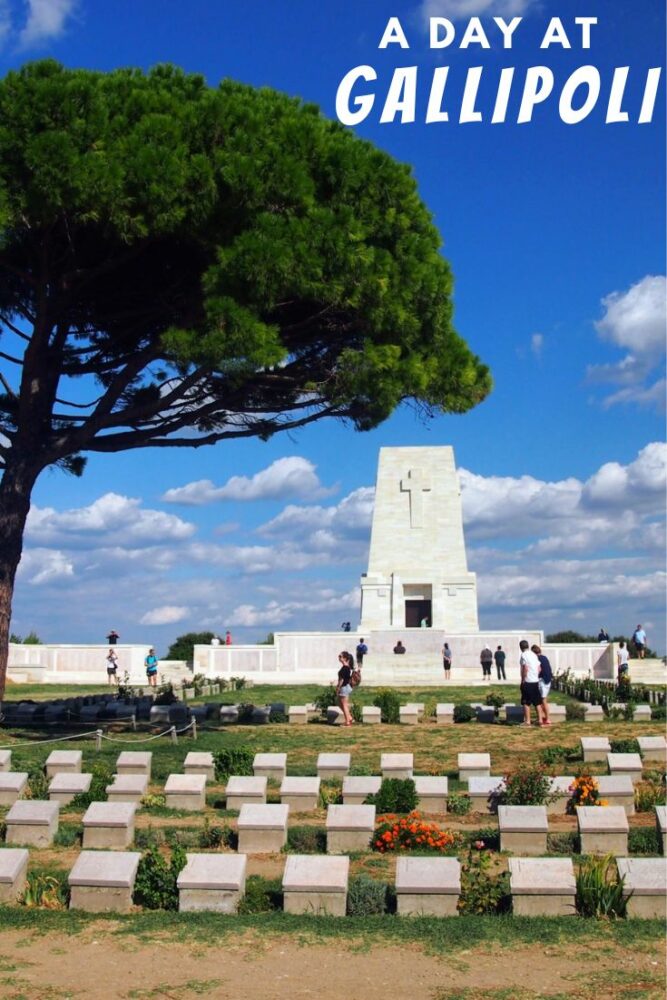

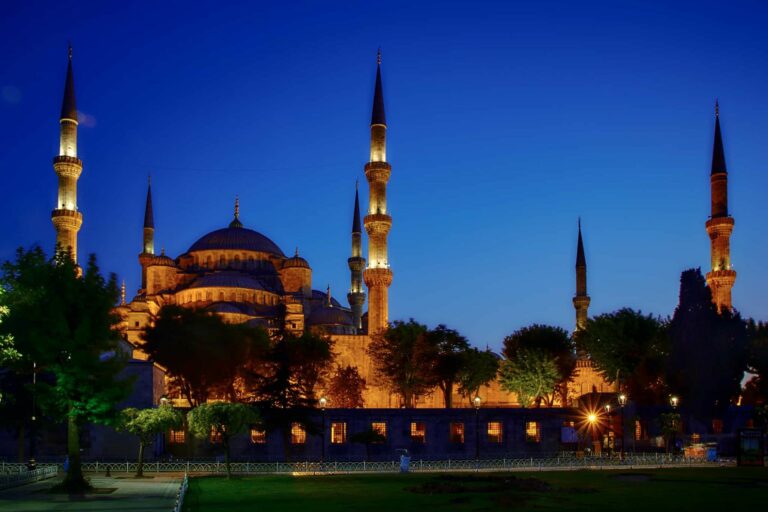
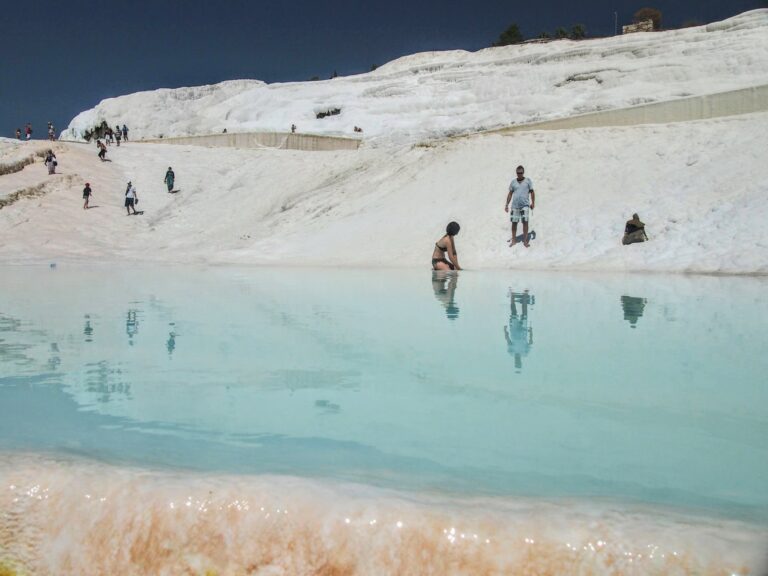
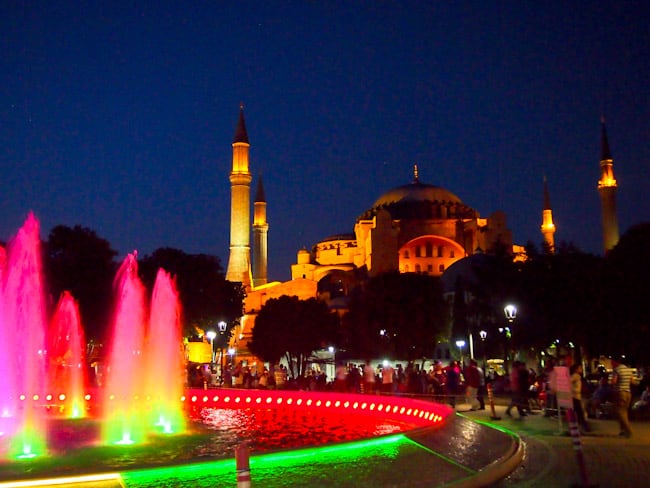
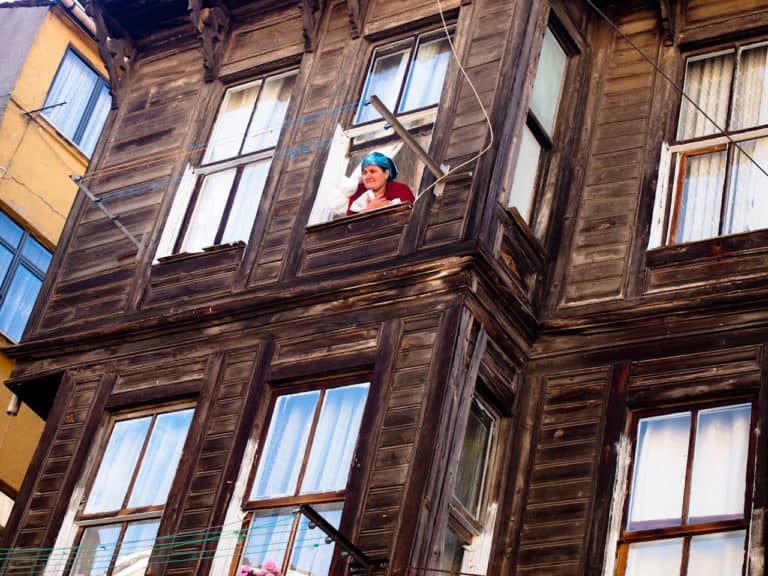
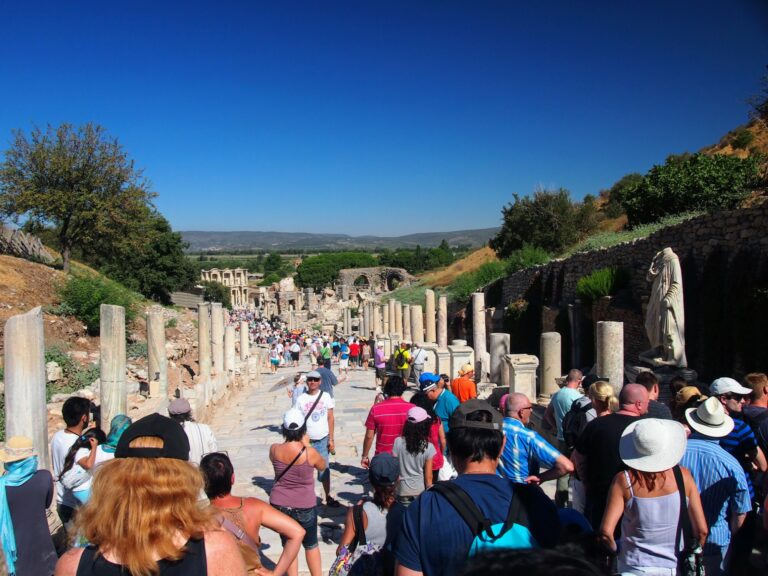
It is quite sad and what is even more sad is that these days, there are still men dying for their countries, when there is no need. Around the world, there are so many wars and you would think we would have moved on from that now.
You really would, and yet it seems that little has changed in 100 years except the efficiency of the extermination. 🙁
Yes. This speech unfortunately is still very much current and timely… How sad that people never learn…
very well written! could really hear your heart and feelings in that post! The speech is fantastic, thanks for sharing!
That Ataturk quote gets me every time – I included it in my Gallipoli post, too, and still get a bit teary reading it.
For me, visiting Gallipoli was really different. It’s not a battle we learn about in the U.S., so it was all completely new to me. Which I think made it all the more overwhelming and sad.
I visited Gallipoli about 10 years ago and found it very moving. And yes, thought the whole battle was futile, just like all other wars. It’s good that these battlefields are still around to serve as a reminder.
thanks for your sensitivity Dave. And we don’t forget Atatürk’s historical order to 57.th regiment: ” I don’t order you to attack, I order you to die! In the time which passes until we die, other troops and commanders can take our place.”
And we are thought that the flag of the 57th Regiment is on display at Melbourne museum in Australia. It’s said that these words are written under it: “This regimental flag was brought from Gallipoli but it could not be enslaved. According to the traditions of the Turkish army, the flag of a regiment cannot be surrendered until the last soldier of a regiment is dead. This flag was found on a tree with the last soldier of the regiment lying under it. Do not pass by the flag, which is a symbol of bravery, without saluting it.”
Thank you for this sharing Dave.
Unfortunately the colonialism is still under way. Now it is in Iraq, Kuwait, Afghanistan, Syria, … Still mothers are crying for their sons. Nothing is changed since then.
But there is still hope, because there are still good people breathing on earth! And the fight of the good and the bad will go on and on till the end.